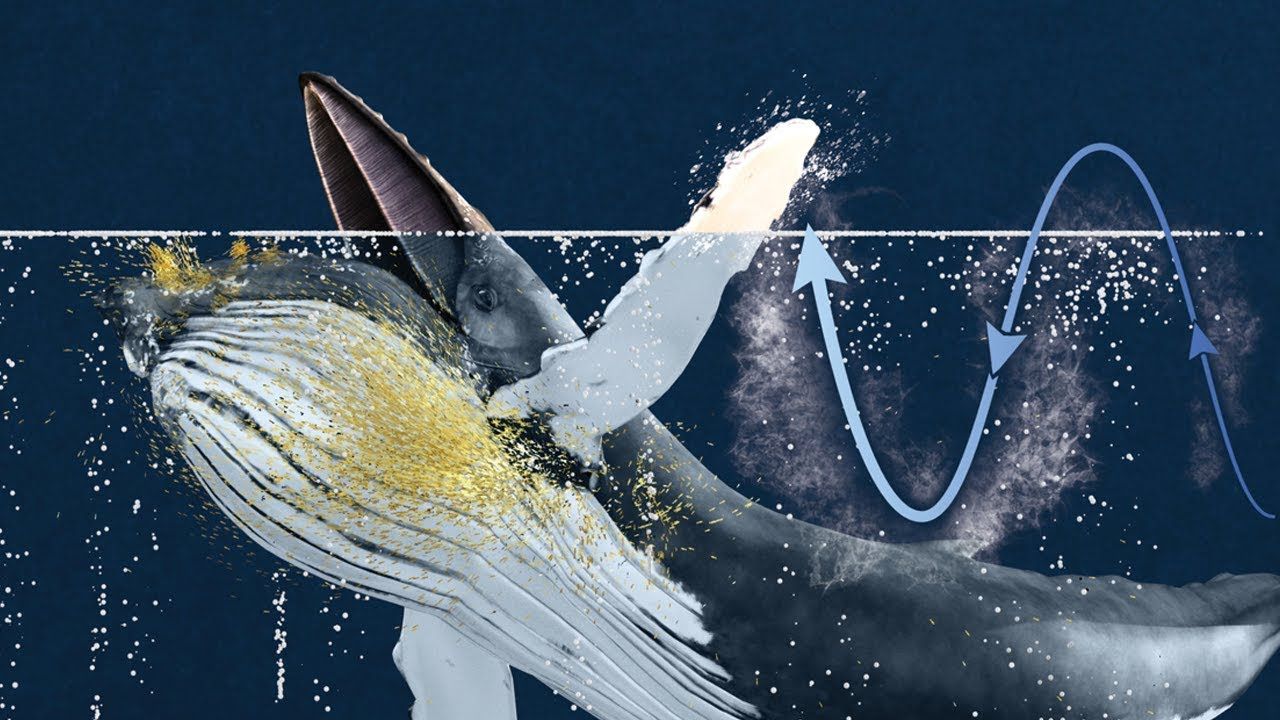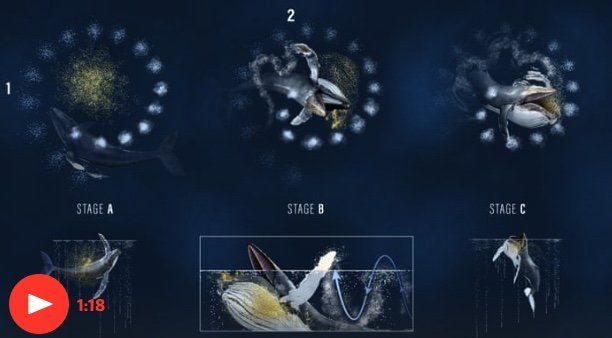Humpback whales recorded using their pectoral fins to scoop fish for the first time!
Humpback whales have been filmed for the first time engaging in unusual feeding behaviour - using their pectoral fins to scoop fish! Humpback whales are known to corral fish into bait balls by surrounding them in streams of "bubble nets" released from their blowholes, then rise up from beneath and engulf their prey with a powerful thrust from their tail flukes, but new footage reveals some humpbacks have taken foraging strategies to the next level!
SOUTH-EAST ALASKA - Baranof island, scientists from Fairbanks, University of Alaska researching humpback whales foraging on juvenile salmon released from hatcheries notice the whales engaging in an unusual foraging method. The behaviour was first observed from a vertical view on-board a vessel, but once the scientists got an aerial shot of the whales from above, they realised they hadn't seen humpbacks using their pectoral fins to feed before.
Exceptionally long pectoral fins or flippers are characteristic of humpback whales. Their flippers can reach up to a third of their body length, making them up to 5 metres long in adult whales. The pectoral fins function primarily for manoeuvring and providing sudden bursts of acceleration. As a humpback lunge feeds through a school of fish, the whale’s baleen, a large comb-like filter in its mouth, sieves the food from the in-flow of water.
Although it has been speculated that humpbacks may also use their pectoral flippers to herd prey since the 1930's, Madison Kosma a masters student at the University of Alaska, captured and analysed the footage and discovered the whales were using their pectoral fins in three different ways.
1. Creating a physical barrier to prevent prey from escaping.
2. Horizontal pectoral herding ; where the whale creates a bubble net around the fish it is hunting and then rises up at an angle, uses one pectoral fin to wash the fish into its mouth.
3. Vertical pectoral herding; the whale again created a bubble net but then lunges at the shoal from beneath with its fins pushed upwards. The light colouring of the insides of the fins may scare the prey into the dark refuge of the whale’s mouth.
The research published in the Royal Society of Publishing indicate that behaviour plasticity may help foraging humpbacks in changing environments and shifts in prey availability. Further study could help determine whether this foraging behaviour, i.e. "pectoral herding" is fundemental to humpback populations and what conditions promote its use.
Reference
:
Kosma, M.M., Wreth, A.J., Szabo, A.R., Straley, J.A., (2019). Pectoral herding: an innovative tactic for humpback whale foraging. Royal Society of Open Science. Vol 6, Issue 10. https://doi.org/10.1098/rsos.191104
SHARE THIS ARTICLE















